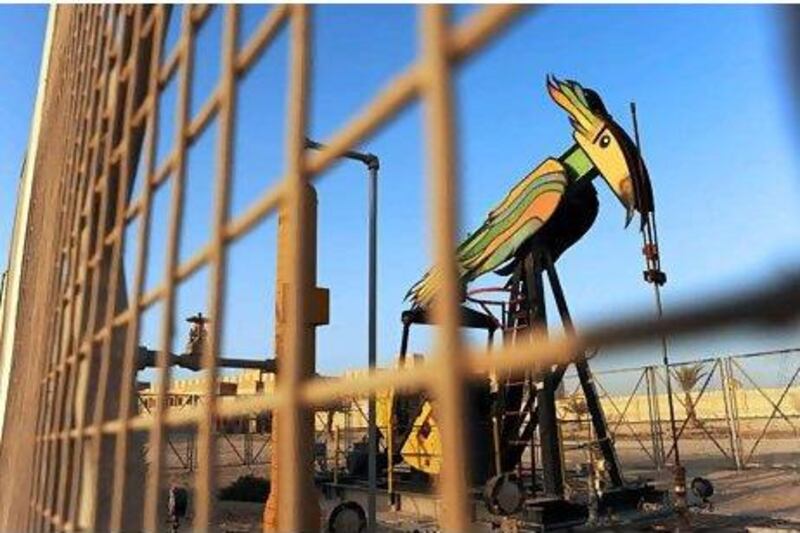As a major oil exporter, the GCC stands to benefit from price rises while other economies feel pain. But these increases do not hurt to the same degree in all places, writes Tim Fox
A World oil prices are on the rise. Since the start of the year, Brent has increased from US$110 per barrel to $125, while West Texas Intermediate (WTI) is up from $100 to $107.
Since October, the rises have been even bigger, up 33 per cent in Brent terms and up 40 per cent in terms of WTI. Just as they did a year ago, oil prices have the potential to complicate the global recovery that is only just getting under way.
This time a year ago, a similar rise in oil prices left global growth weak and vulnerable especially after the Japanese earthquake had already dealt the recovery a significant blow. This was followed by European and US debt crises, which compounded the slowdown.
Similar to last year, the impetus for higher prices appears to be coming from the perception of a threat to supply - in today's case from Iran, in last year's from Libya.
However, this is not the only cause. According to some analyses, geopolitical factors account for less than half the rise in the price of Brent so far this year, with the rest explained by renewed confidence in the US recovery as well as by rising structural demand from industrialising countries such as China.
On this basis much of the oil price rises, if not most of them, are accounted for by factors that are unlikely to be temporary. It may be that a new equilibrium in oil prices is being found, above $100 say, which in turn would have different repercussions for the global economy than if the increases were likely to be quickly reversed.
With this in mind, it is worth noting that the average oil price last year was $109, not so different from the $115 average so far this year. From this perspective, the recent increase in price may be less troubling for the world economy than it would be if the price had risen more abruptly.
In fact, with the average oil price since 2008 about $95, the current levels seem much less extreme and perhaps less threatening than they might have appeared at first sight.
Effectively, oil prices remain within the broad range they have occupied for four years. More often than not it is the speed of the change rather than the oil price level itself that matters the most when it comes to considering the likely economic impact.
Businesses and consumers take time to get used to higher oil prices, but problems usually occur when prices double over a few months or even a year - something that has not happened in this instance, with prices at worst up 30 to 40 per cent over a number of years.
Academic discussions about the impact of higher oil prices mostly centre on the impact on consumption in oil-importing countries.
Literature from the US Federal Reserve shows that a persistent increase in oil prices of $25 per barrel can reduce US real GDP growth 0.5 per cent after the first year and can raise consumer price index inflation two percentage points over the same period.
The effect varies from country to country, however, depending on the importance of oil imports to GDP, and depending on the size of the energy component of the inflation basket. Where oil imports are greater than 5 per cent of GDP, the output loss can be closer to 1 per cent.
By the same token, developed countries tend to have a relatively small energy component in their inflation baskets, meaning that the inflation impact for those countries is much less pronounced.
With most developed economies also still operating with substantial output gaps (where economic growth is below the trend rate), the feed-through into final prices is likely to be even less as demand is lacking.
In emerging markets, however, where energy makes up a greater proportion of headline inflation baskets, the impact of any oil price is likely to be much greater. Many economies in the Middle East and North Africa are vulnerable to such effects, especially those that are net oil importers and do not benefit from higher oil prices through increased oil output.
The GCC, on the other hand, is a net beneficiary, being a major oil exporter. Even if oil production does not rise, as it did last year to make up for the shortage of supply caused by the disruption of Libyan supply, the rise in price will still boost revenues, providing countries in the region with greater comfort as they push ahead with infrastructure spending plans.
To the extent that oil revenues are deposited in domestic banking systems in the GCC, liquidity conditions could also improve.
Risks to this region are not entirely absent. Any further sharp increase in the oil price that threatens to choke off growth in the United States and China will eventually also knock through into the GCC.
Such demand destruction should ultimately be self-correcting as the oil price adjusts lower, in the process potentially exposing the region to fiscal risks.
At current levels, however, oil prices are more of a complication to the global recovery, rather than a source of derailment.
A Tim Fox is the group head of research and the chief economist at Emirates NBD but is writing here in a personal capacity





